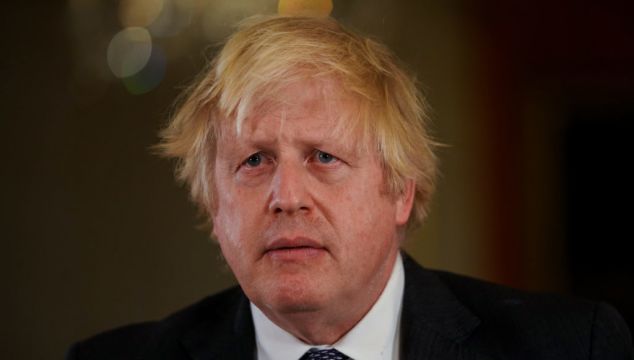Conservative MPs in Britain will be weighing up their confidence in Boris Johnson over the Christmas break as a dark cloud looms over his premiership.
With the new Omicron variant of coronavirus sweeping across the country, the coming weeks may serve as an opportunity for some to draft letters to the chairman of the 1922 Committee of Tory backbench MPs, signalling their loss of faith in the British prime minister.
The Telegraph reported earlier this week that Tories had been told they can email chairman Graham Brady, calling for a vote of no confidence in the prime minister, over the holidays, in what the newspaper said was a blow to allies who hoped the festive season could relieve pressure on Mr Johnson.
Under party rules, if the committee chairman receives 54 letters in favour, he will be required to stage a vote.
It has been a week peppered with woes for the British prime minister – starting with a major rebellion in the UK Commons over Covid-19 measures, and ending with a stinging defeat in a by-election for what has traditionally been a safe Tory seat.
Pizza party
In the intervening days, fresh allegations have emerged of a pizza party held in Downing Street during England's first lockdown, while the police said they would make contact with two people who attended a gathering at the Conservative Party headquarters in December last year.
Meanwhile, an investigation by cabinet secretary Simon Case into events alleged to have taken place in Downing Street and the Department for Education in November and December 2020 continues.
The Conservative Party leader also faces allegations that he misled his ethics adviser over what he knew about a controversial refurbishment of his No 11 flat.
Perhaps the biggest blow to Mr Johnson this week – and one that has led some to signal he is on thin ice – was the loss of the Tories’ ultra-safe seat in England's North Shropshire constituency in Thursday’s by-election.
The contest was triggered by the resignation of Owen Paterson, with many Tories still angry at the British government’s botched attempt to get him off the hook after he broke the rules on paid lobbying by MPs.
'Last orders time'
Liberal Democrat candidate Helen Morgan sailed to victory by 5,925 votes, with opposition parties and Conservative MPs quick to seize on the result as a verdict on the government’s performance.
British education secretary Nadhim Zahawi had said by-elections are sometimes used by voters to “send a message”.
On Friday morning, Conservative Party chairman Oliver Dowden said their frustration had been heard “loud and clear”, as the Tories received “a kicking”.
After the revolt earlier in the week, when 100 Tory MPs rebelled over the latest Covid restrictions, veteran backbencher Roger Gale warned Mr Johnson is living on borrowed time.
“I think this has to be seen as a referendum on the prime minister’s performance and I think that the prime minister is now in ‘last orders time,” he told BBC Radio 4’s Today programme.
“Two strikes already - one earlier this week in the vote in the Commons and now this. One more strike and he’s out.”
Campaign to oust?
Question marks remain over whether the loss will be enough to exhaust MPs’ patience and spark a campaign to oust Mr Johnson.
The Telegraph reported on Wednesday that one senior Tory MP said: “Everything is riding on North Shropshire. I think Boris is in a lot of trouble. One hundred backbenchers voting against you on a critical vote is trouble, it doesn’t matter how you spin it.
“Whether that trouble is going to escalate, very much depends on what will happen tomorrow.”
But senior backbencher Charles Walker, who is vice-chairman of the 1922 Committee, said in the wake of the vote that a leadership challenge would be “completely self-indulgent”.
Labour, meanwhile, described the North Shropshire result as a “terrible” outcome for the Conservatives.
Shadow business secretary Jonathan Reynolds told BBC Breakfast: “Clearly people have wanted to send a message to the government they’re fed up with the incompetence, the sleaze, the kind of revelations we’ve seen over the last few weeks.”
After winning a convincing majority at the last general election, the British prime minister’s authority has come crashing down in recent weeks.
His fate will depend on whether he can convince his party that he remains – as Mr Dowden put it on Friday morning – an “electoral asset”.







